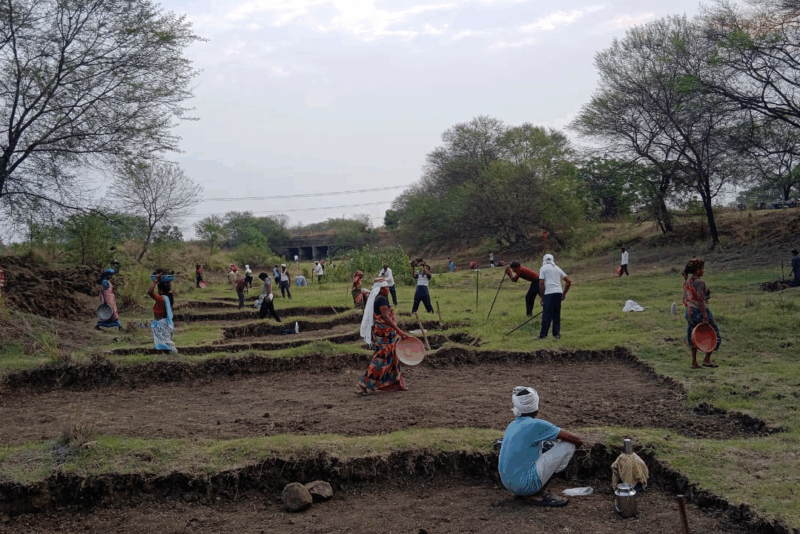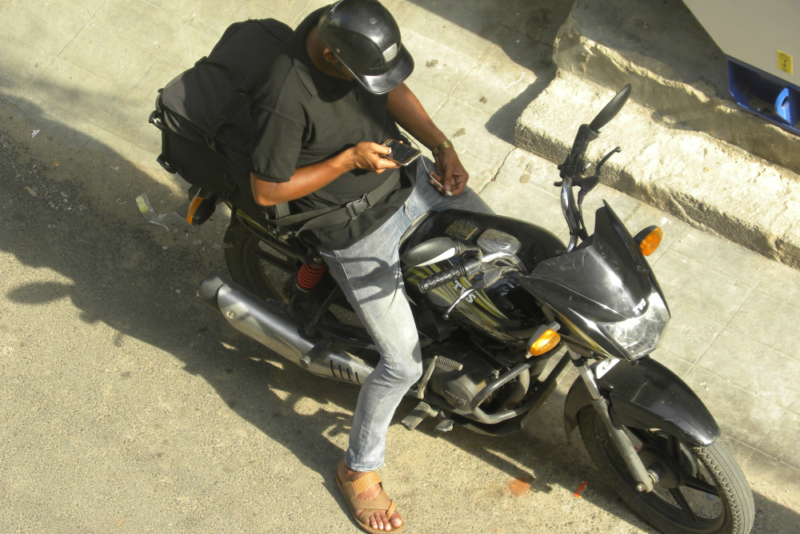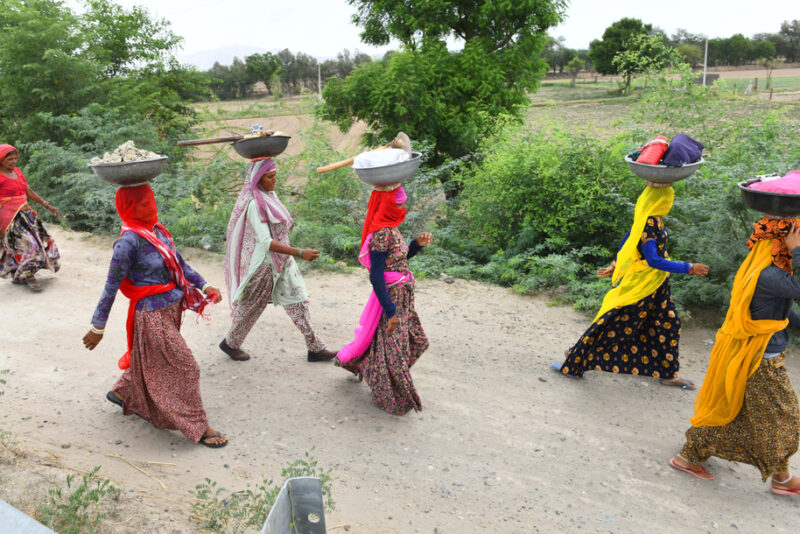From Project Coordinator to PhD: TCI Scholar Kasim Saiyyad
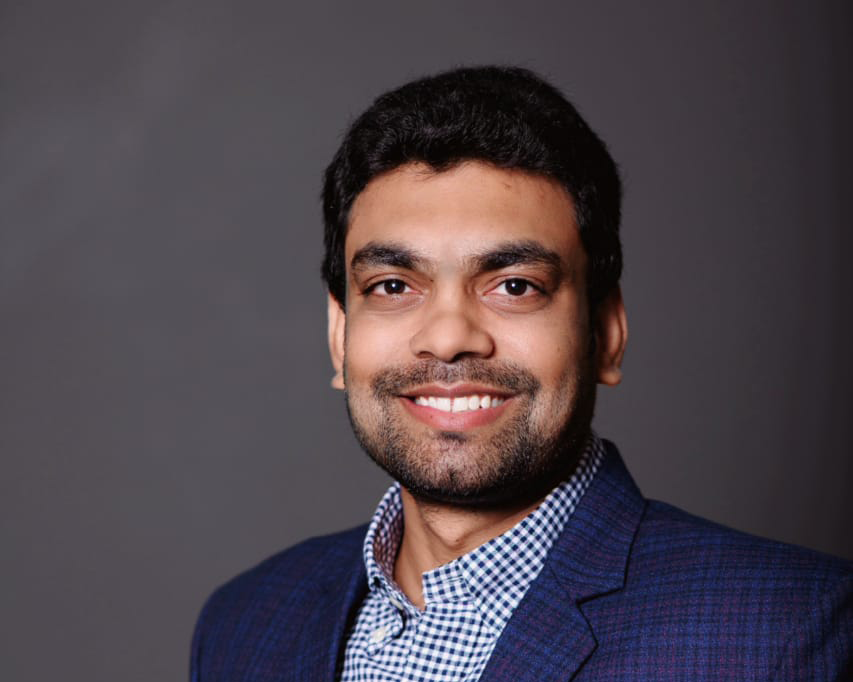
A typical TCI scholar is at TCI for about five years—the time it takes to finish their PhD—starting their journey in the classroom before moving to the field to conduct research. TCI Scholar Kasim Saiyyad took a different path. Long before he began his doctoral studies at Cornell, he was a TCI staff member in India, helping to coordinate research projects in the field. In the following interview, Kasim reflects on that experience and how it has affected his studies as he works toward a PhD in applied economics and management.
You were a TCI staff member before you became a TCI scholar. What has that journey been like?
My journey from TCI staff member to TCI scholar has been a transformative experience, one that has deepened my understanding of the interplay between theory and practice within the realm of development studies. As a staff member, I had the privilege of assisting numerous TCI scholars in coordinating their fieldwork across India, allowing me to travel extensively and gain firsthand insight into pressing issues such as poverty, nutrition, and education in rural India. Engaging with these scholars on the ground fostered my interest in development research and laid the foundation for my academic pursuits.
One particularly formative experience was my role in leading the multi-partner, community-based flour fortification program (Sfurti) in Gujarat. Collaborating with partners like Dutch State Mines, BAIF, Maharaja Sayajirao University, and the Tata Institute of Social Sciences, in addition to women’s self-help groups in 15 tribal villages, we provided a simple but effective solution to mitigate micronutrient malnutrition by providing micronutrient sachets for households to mix in their flour. Through an intensive awareness campaign featuring demonstrations, meetings, church visits, and promotional materials showcasing local beneficiaries, we successfully reached over 70% of households and generated demand for our micronutrient sachets.
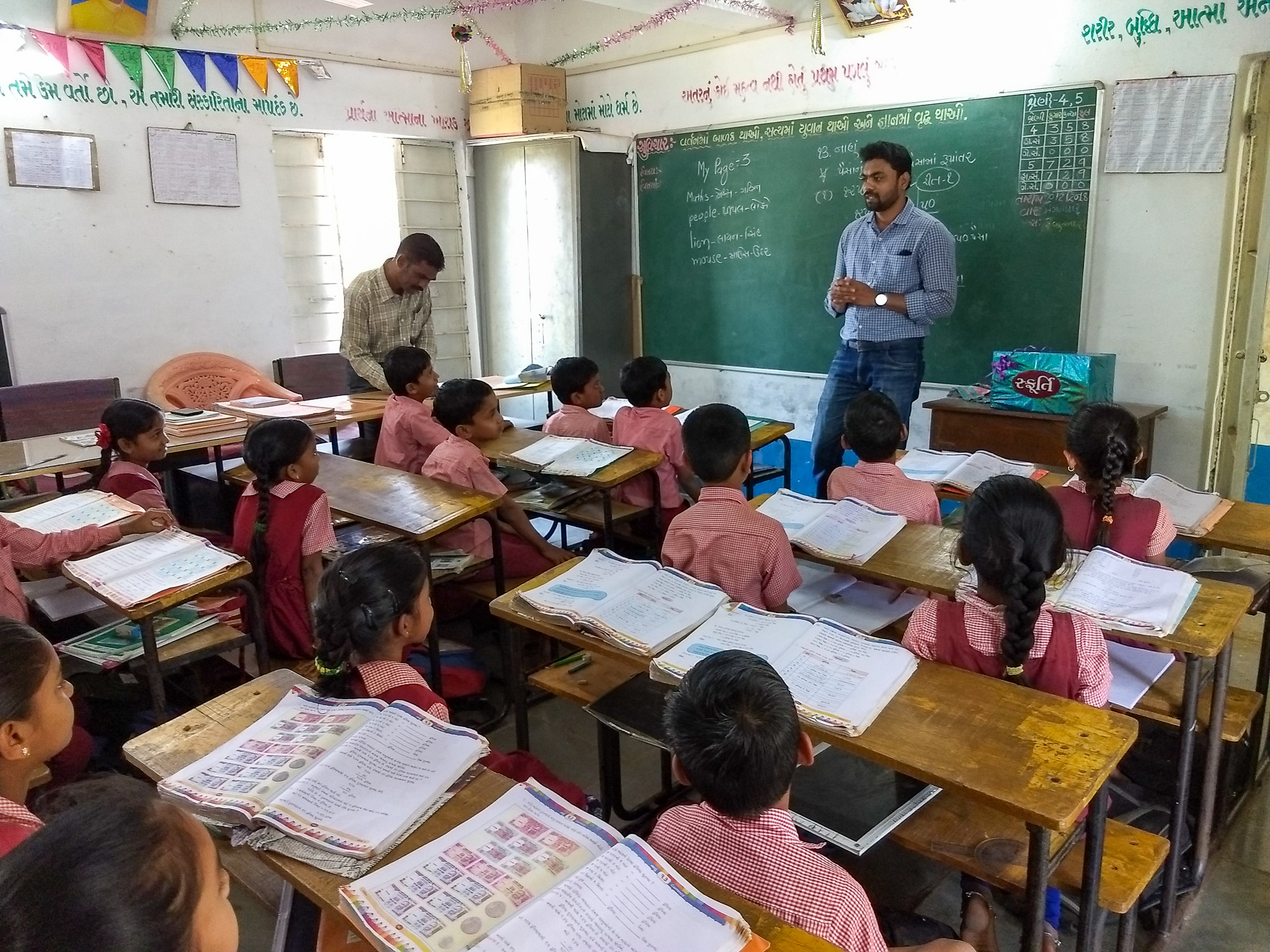
Kasim Saiyyad led TCI’s Sfurti project before pursuing a PhD as a TCI scholar. (Photo by TCI)
This project exposed me to the severe and widespread problem of malnutrition and its profound impact on family well-being. The firsthand knowledge I gained offered a deeper understanding of the issue and potential solutions, while also improving my communication, networking, and project management skills. It filled gaps in my comprehension of the problem and solidified my commitment to pursuing development research to drive positive change.
Following this experience, TCI presented the opportunity to continue my academic journey at Cornell University, first as a master’s student and then as a PhD scholar in the Dyson School of Applied Economics and Management. My time at Cornell has been a rollercoaster ride, allowing me to collaborate with faculty, fellow students, and staff who have broadened my perspective and challenged me to approach issues from a researcher’s viewpoint.
The knowledge and analytical frameworks gained through my studies at Cornell have complemented my fieldwork experience, enabling me to bridge the gap between theory and application. This synergy has been instrumental in shaping my approach to development research, equipping me with the tools to critically evaluate existing solutions and explore innovative approaches grounded in rigorous academic inquiry. As I continue on this path, I am driven by the belief that we can unlock transformative solutions that truly uplift the lives of those most in need.
Why did you decide to study applied economics?
During my time coordinating fieldwork for TCI scholars and leading Sfurti, I gained invaluable practical insights into the intricacies of implementing development initiatives. However, I also recognized the need for a more comprehensive understanding of the underlying economic principles, theoretical frameworks, and analytical tools that inform effective policymaking and sustainable solutions.
It was this realization that motivated me to deepen my academic pursuits and embark on a PhD journey in applied economics. The interdisciplinary nature of this field, which draws upon economic theory, quantitative methods, and evidence-based research, appealed to me as a means to bridge the gap between theory and practice—a gap I had encountered in my previous work.
Even if my research can have a small impact in understanding and formulating policies on alleviating poverty, improving access to healthcare and education, and promoting sustainable livelihoods, that is a profound motivator.
I aim to develop a strong foundation in economic analysis, econometric modeling, and policy evaluation techniques. This rigorous training will equip me with the skills to critically assess existing policies and programs, identify their strengths and weaknesses, and propose data-driven interventions that address the root causes of development challenges.
How has being at TCI benefited your studies?
Being affiliated with TCI has significantly enhanced my academic journey in various ways. First, I gained direct exposure to real-world challenges through projects and fieldwork in India, fostering a nuanced understanding of issues like poverty alleviation, health and nutrition, and education. Second, TCI’s interdisciplinary approach broadened my perspective by incorporating insights from economics, nutrition, agriculture, and public policy. Additionally, the Institute provided extensive networking opportunities, connecting me with researchers and policymakers in the development sector. Mentorship from experienced professionals has guided me through my doctoral studies, while financial support enabled me to pursue research aligned with TCI’s mission without distractions. Furthermore, TCI emphasized translating research into practical solutions, allowing me to apply academic knowledge to real-world scenarios.
Overall, TCI’s holistic support has enriched my academic journey, preparing me to make impactful contributions as a development economist.
How has the experience of fieldwork impacted you and your work?
Immersing myself in fieldwork has provided a tangible connection to the communities I study, offering firsthand insight into their challenges and aspirations. This direct experience has shaped my research questions and methodologies, ensuring that my work remains relevant and responsive to the needs of the communities it aims to serve.
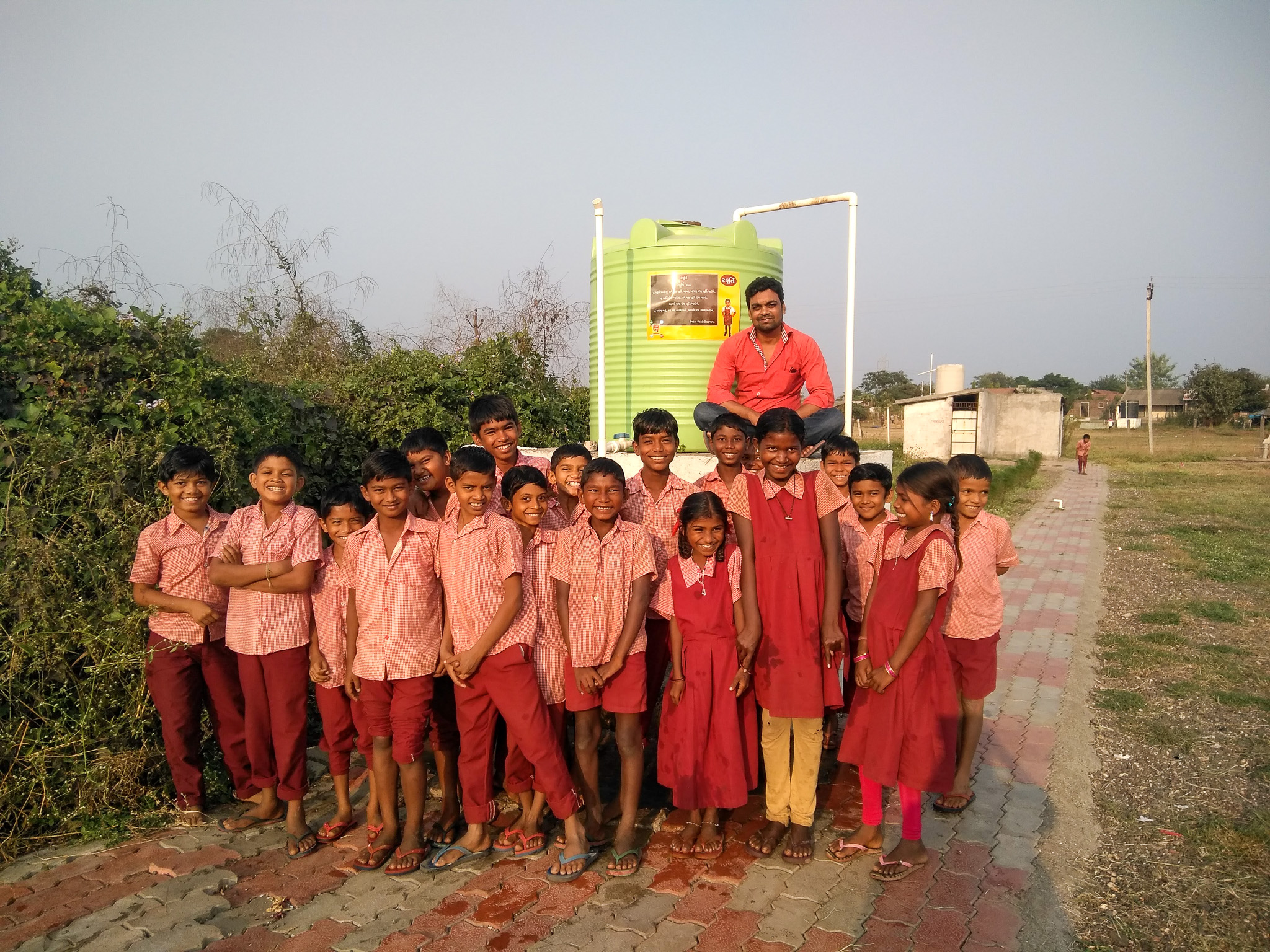
Saiyyad’s work as Sfurti project coordinator involved conducting outreach with school and community groups. (Photo by TCI)
Furthermore, being in the field has deepened my understanding of the intricate contextual factors influencing development outcomes, enriching my analytical approach by accounting for the complexities often overlooked in theoretical models. Engaging in fieldwork has also heightened my awareness of the ethical considerations inherent to conducting research in vulnerable communities, emphasizing the importance of respecting local customs and avoiding harm or exploitation. It has fostered meaningful stakeholder engagement, facilitating knowledge exchange and collaborative solutions to development challenges. Alongside this, navigating logistical hurdles and cultural differences during fieldwork has honed my adaptability and resilience, teaching me to embrace uncertainty and persist in the pursuit of knowledge.
Finally, perhaps most significantly, fieldwork has instilled in me a profound sense of humility and empathy, reminding me of the privilege inherent in my position as a researcher and deepening my commitment to using research as a tool for positive change and amplifying the voices of those I seek to support.
What motivates you to do your research?
I have closely witnessed the impact that poverty, malnutrition, and lack of access to education can have on individuals and their families, hampering their ability to reach their full potential. This exposure has fueled a desire within me to contribute to the development of evidence-based solutions that can address these pressing challenges. Even if my research can have a small impact in understanding and formulating policies on alleviating poverty, improving access to healthcare and education, and promoting sustainable livelihoods, that is a profound motivator.
My motivation is also fueled by a deep respect for the resilience and aspirations of the communities I study. Through my fieldwork experiences, I have been humbled by their strength, determination, and unwavering spirit in the face of adversity. This has instilled in me a sense of responsibility to amplify their voices, to understand their perspectives, and to ensure that my research is inclusive, culturally sensitive, and aligned with their needs and aspirations.
What do you hope to do with your degree in the future?
I hope to use my skills and knowledge to evaluate existing public policies and develop new economic policies for social upliftment, be it in academia or in organizations such as the World Bank. I am particularly interested in exploring approaches that enhance efficiency and equity in the delivery of essential services—such as healthcare and education—to underprivileged populations in developing countries. By examining the economic, social, and institutional factors that influence access and utilization of these services, I aim to identify bottlenecks and propose targeted interventions that can improve service delivery and maximize positive outcomes for the intended beneficiaries.
This interview has been edited for clarity and length.
Feature image: Kasim Saiyyad. (Photo provided)



